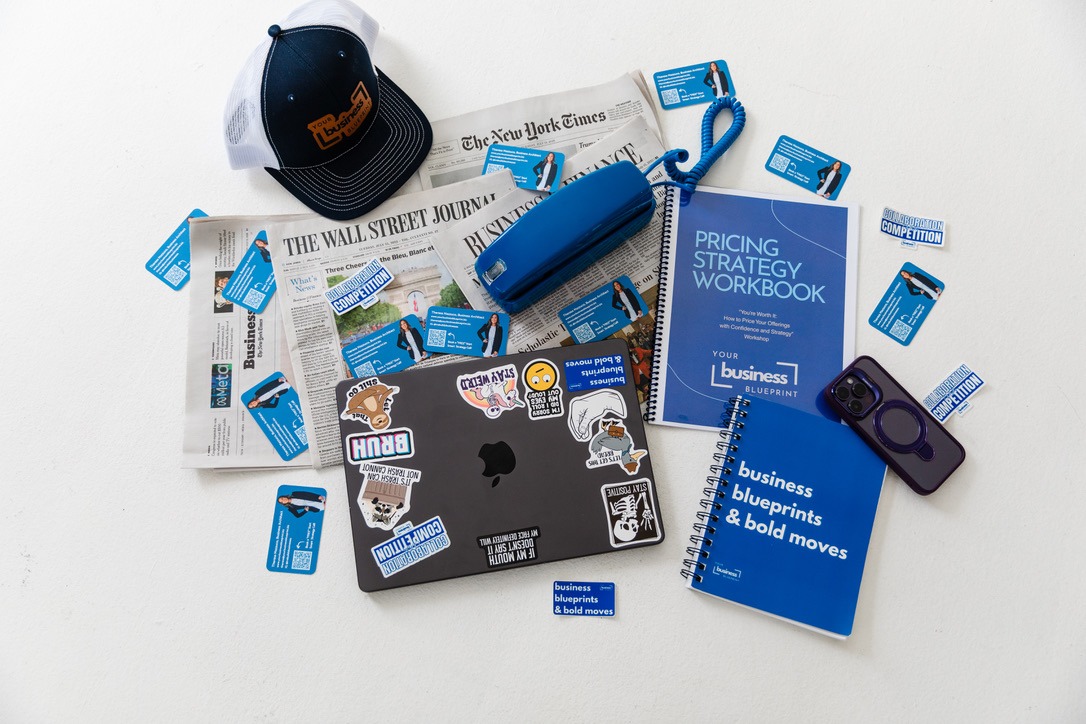November 4, 2025
and what to do about it

Most people think once they have a great idea, solid personal credit, and maybe a business plan, they can walk into a bank and get a loan.
But the truth is you can’t even apply for most business loans as a brand new business.
Traditional lenders — banks, credit unions, and even SBA-backed programs — typically require your business to have two years of tax returns before you’ll even be considered for funding.
That’s not two years of working on your idea or selling casually on the side.
It’s two years of being officially registered, filing taxes as a business, and showing actual revenue.
Without that paper trail, your business doesn’t technically exist to lenders.
So even if your personal credit is spotless, your income looks great, and your business idea is solid — they won’t touch it. To them, it’s too risky.
Most new entrepreneurs think they can walk into a bank with a great idea, good personal credit, and maybe a registered business — and walk out with a business loan.
It’s one of the biggest misconceptions I see. People assume that as long as they have an LLC, a business plan, or some savings to show they’re serious, the bank will fund them. But that’s not how it works.
Lenders don’t base decisions on ideas — they base them on proof. And to a bank, proof means at least two full years of business tax returns showing consistent income and operations. Until then, most traditional lenders won’t even accept your application, regardless of how qualified you are personally.
After earning my degree in Business Admin/Finance, I briefly worked as a banker — while still running the business I’d taken over from my dad (if you don’t know that story yet, hang around a little while, you will). The business itself was an established S Corporation that had been around for many years, and during my time running it, I had secured multiple business loans. For cars, during COVID we got a PPP loan, secure business lines of credit, SBA loans, etc.
Even with that experience, I didn’t realize how rigid the lending requirements really were until I was on the other side of the desk, being trained to complete loan applications for clients. I didn’t even know the “two years in business” rule existed before that, and it’s a non-negotiable requirement across most traditional lenders and even the majority of SBA products.
We’ve all seen the image a hundred times in old movies — someone in a suit walking into a bank with a briefcase, explaining their business idea to a banker, and walking out with funding. That might’ve worked decades ago, but it’s definitely not how things operate today. Until your business has filed at least two years of tax returns, it usually doesn’t matter how strong your personal credit or business plan is — you simply won’t qualify to apply.

In Your Business Blueprint’s START SMART™ framework, forming your LLC isn’t the very first step — but it is one of the earliest, right after planning & picking your business name.
And when it comes to funding, it’s one of the most strategic things you can do early on, because that registration date is what starts the clock lenders care about.
Here’s why forming your LLC early is so important:
If you’re in the early stages but want to eventually qualify for business loans or grants, focus on these steps:

Just because traditional loans are off the table early on doesn’t mean you’re out of options. There are several ways to fund your business while building that track record:
The key is to combine what’s accessible now with a long-term plan to qualify for larger funding later.
Funding isn’t impossible — it just takes time, proof, and preparation.
If you wait to register your business until you “need” funding, you’ll already be two years behind.
Forming your LLC early, keeping clean financial records, and filing taxes consistently will set you up for future opportunities — not scramble mode.
If you’re not sure how to get your finances in order or what lenders actually look for, check out my guide on Finances & Funding for new businesses. It walks you through the basics of business banking, credit, and what you can do now to prepare for future funding.